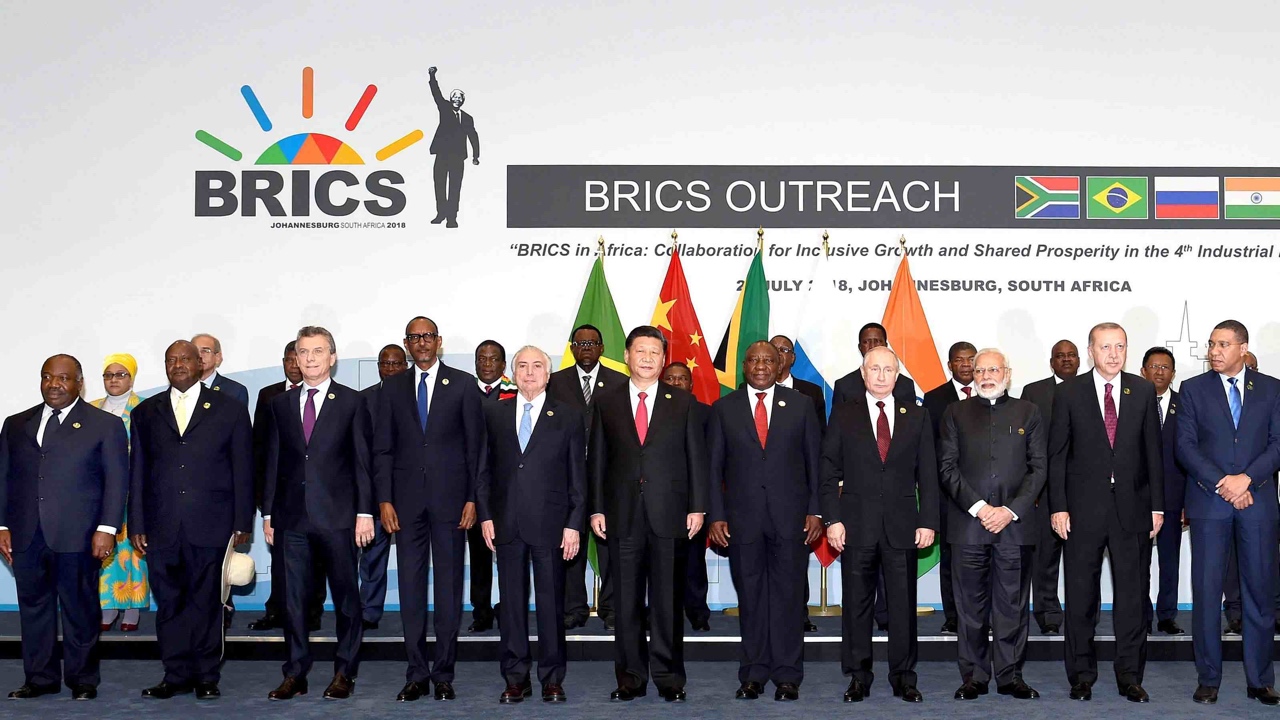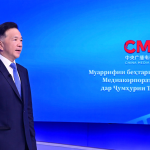The prospects for the development of BRICS+ and the readiness of dozens of countries of the Global South to integrate into the union has become one of the most discussed topics at international summits and forums.
At the St. Petersburg International Legal Forum (SPILF) held in Russia at the end of June, leading players in the legal community from Asia, Africa, the Middle East, Latin America, and the CIS took part in numerous discussions and debates on the aspects of integration processes and the opportunities offered to their countries through cooperation within the BRICS framework.
SPILF, held in the Northern Capital of Russia for the twelfth time, has long been one of the most important platforms for communication between legal representatives of a number of countries. Thus, this year, in addition to the top leadership, renowned jurists, lawyers, and public figures of the host country, the forum was attended by delegations from African, Asian, Middle Eastern, and Latin American countries.
Given that Russia will chair BRICS+ in 2024, the issue of the development of a rapidly expanding organization shaped the agenda of all meetings both at the forum and its sidelines among SPILF delegates.
Over the past year, five major countries (Egypt, Iran, the UAE, Ethiopia, Saudi Arabia, India, China, and South Africa) have joined BRICS, which originally consisted of Brazil, Russia, India, China, and South Africa, and 32 more countries have applied or are in the process of applying to join the organization, while many more have partnerships with BRICS+.
The issue of creating an effective legal platform for cooperation was emphasized given the rising number of projects facilitated by the organization in the economic, energy, logistics, scientific, and humanitarian spheres among others.
Lawyer Srinivas Thanniru noted that SPILF is a fantastic platform for the exchange of knowledge and initiatives for the many legal professionals gathered in Russia. He said, “We get a lot of new experience, new ideas here. As far as expansion is concerned, this process is already well underway in BRICS, and it makes a lot of sense”.
Ahmed Khatab, judge and head of the Egyptian antitrust authority, said his interest in participating in SPILF was due not only to the prestige of the forum but also to the issues of cooperation with colleagues from Russia and BRICS+. According to Khatab, fair and reasonable cooperation is extremely important for the integration processes that are currently taking place in the organization, of which Egypt became a member this year.
“There is close cooperation in the market between BRICS member countries, so we hope that good cooperation will be built between our countries. You know that competition is very important for any economic system, so we are trying to apply the competition law in the best possible way to ensure that it is applied fairly,” he said
Delegates also acknowledged the great interest in Africa to develop partnerships with BRICS+ and even to join the organization. Zimbabwe’s Justice Minister Ziyambe Ziyambe, expressed hope for a rapid dynamic expansion of the new alliance.
“We believe that there is a need to make the BRICS bloc broader so that other countries can become part of it. We believe that this is a good platform to ensure cooperation between Russia and Africa.” Noted Ziyambe
The essence of legal cooperation was amplified given the organization has already surpassed numerous other forums, given the notable growth in mutual trade turnover. In addition, projects such as large-scale energy and logistics projects like the construction of the North-South transport corridor (with the participation of Russia, Iran and India), the development of the Northern Sea Route from the Pacific Ocean to the Atlantic, as well as the expansion of the trans-Siberian and trans-Eurasian railway and pipeline systems are already underway among the organization’s members.
The opening of new corridors and mechanisms for transporting energy, raw materials, food, and consumer goods not only brings internal trade in BRICS+ to a fundamentally new level but also requires partners to solve potential legal challenges.
Security issues also play an equally important role in the development of the organization and cooperation with its partners in the Global South. BRICS+ has made it clear that it does not seek to form an architecture of military blocs. Within the framework of solidarity in security, the development of mechanisms and legal frameworks also requires BRICS+ to collaborate closely. Although the contours of this cooperation are currently only being developed, practical steps in this direction are already being taken both at the bilateral interstate level and on all union platforms. For example, Russia is already providing significant assistance to partners in Africa that are facing external challenges and terrorist threats, while several partner countries support the training of military, police counter-terrorism forces, and investigators.
At SPILF, plans were also announced for Moscow to work with a number of states to create joint exchange and training programmes in the field of law enforcement.
The information about a partnership in this sphere was voiced on the sidelines of the forum by Manuel Silvera Martinez, Minister of Justice of Cuba, who announced the start of training of Cuban police officers, investigators and lawyers in leading Russian universities.
Taking into account the long tradition of friendship and cooperation of the Island of Freedom with the co-founders of BRICS – Russia and China, Mr. Martinez noted the important role of the organization in building a new model of world order that is fair to all.
“From Cuba’s point of view, BRICS is a positive alternative, and we see that these scenarios of multipolarity will continue, they will develop”. He said
The level of support for legal cooperation that came out of SPILF is yet another sign that the multipolarity principle proposed by BRICS+ to be based on a solid foundation of universally recognized laws that take into account the interests of each country has won the hearts of many.





